이용석(전쟁없는세상 활동가)
전쟁없는세상 주:
이 글은 <Waging Nonviolence>에 기고한 글을 국내 독자용으로 수정한 글입니다.
한국 병역거부 운동이 거둔 성과
지난 6월 28일 헌법재판소는 병역법에 대한 헌법불합치 결정을 내렸다. 대체복무제를 규정하지 않은 한국의 현행 병역법이 헌법이 보장하는 가치인 양심의 자유를 침해한다고 규정한 것이다. 11월 1일에는 대법원이 병역거부자에게 무죄를 선고했다. 그동안 하급심에서는 무죄 판결이 118건(2018년 11월 1일 기준)이 있었지만 대법원에서 무죄를 선고한 것은 이번이 처음이다. 헌법재판소와 대법원, 두 최고 법원에서 병역거부를 양심의 자유로 인정한 것은 굉장한 사건이다. 군사독재정권에 맞서 민주화운동이 크게 일어나는 동안에도 정치적 병역거부자가 단 한 명도 등장하지 않을 정도로 군사주의가 강력한 나라였다는 것을 감안한다면 2018년의 성과는 큰 의미를 가진다.
이것은 명백하게 병역거부 운동이 만들어낸 성과다. 물론 1945년 해방 이후 지금까지 묵묵히 1만9천여 명이 감옥에 간 여호와의증인들이 있었기에 오늘의 성과가 가능했겠지만, 이를 사회적인 이슈로 만들고 지속적으로 문제제기를 해온 이들은 정치적 병역거부자와 평화활동가들이었다. 병역거부 운동의 꾸준함이 결국 한국사회에서도 가장 보수적이라 일컫는 사법부의 결정을 이끌어낸 것이다.
성공을 가능하게 했던 전략들-평화주의, 국제연대, 위기 극복, 여성주의 리더쉽
헌법재판소의 결정과 대법원의 무죄 판결을 이끌어낼 수 있었던 것은 병역거부자들이 꾸준히 등장하고 그로 인해 이 이슈가 지속적으로 사회적인 이슈로 다뤄졌기 때문이라고 생각한다. 특히 정치적 병역거부자들은 기자회견을 하거나, 지지자들과 함께 파티를 하는 등 다양한 방식으로 병역거부자의 존재를 가시화했다. 그 중심에 전쟁없는세상이 있었다. 전쟁없는세상은 병역거부를 고민하는 이들을 상담하고, 병역거부 하는 이들이 자신의 생각을 한국사회에 알리는 방식을 함께 고민하고 기획하고 실행했다. 병역거부자들은 자연스럽게 전쟁없는세상을 중심으로 모여들었고, 병역거부 선언을 하고, 감옥에 다녀왔다. 그 과정에서 병역거부자들과 전쟁없는세상 활동가들 모두 병역거부 운동의 의미에 대한 고민이 깊어져갔다.
병역거부 운동 초창기에는 병역거부자들을 감옥에 보내면 안 되고 대체복무제를 만들어야 한다는 주장을 주되게 했는데 점차로 병역거부 운동은 국가폭력에 저항하는 시민불복종, 전쟁에 저항하는 평화운동의 성격을 띠게 됐다. 병역거부 운동이 점차로 평화운동의 성격을 강화해갔다는 지점은 무척 중요하다. 이를 통해 병역거부자들의 면면이 더욱 다양해질 수 있었기 때문이다. 국가 공권력의 전횡을 보고 병역거부를 결심한 병역거부자, 페미니스트로서 왜곡된 남성성을 재생산하고 확대하는 군대를 거부한 병역거부자, 퀴어로서 군사주의가 강요하는 정상성과 군사주의를 거부하는 병역거부자들이 전쟁없는세상과 함께 병역거부 선언을 했다. 다양한 병역거부자들의 등장은 한국사회에서 병역거부의 의미를 확장했고, 이 이슈가 세월이 지나면서도 계속 사회 이슈로 남아있을 수 있는 자극제가 되었다.
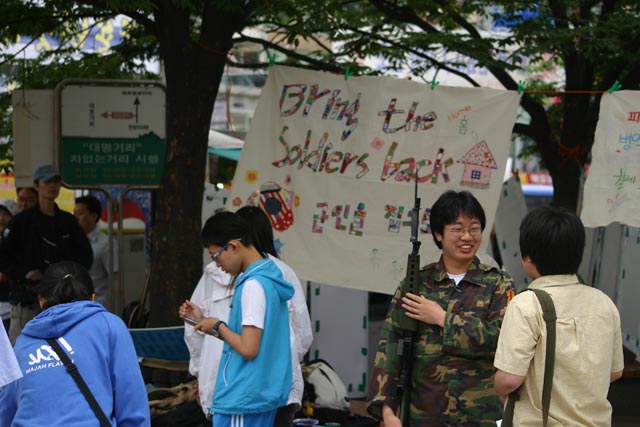
2004년 병역거부자의 날 캠페인 ‘군인을 집으로 Bring the soldiers back home’ 2003년 5월 15일 결성한 전쟁없는세상은 병역거부자들이 모이고, 함께 평화운동을 모색해가는 허브의 역할을 해왔다.
한편 전쟁없는세상은 병역거부 운동을 해나가는 데 국제사회와의 접촉면을 꾸준히 넓혀갔다. 전쟁저항자인터내셔널(War Resisters’ international, 이하 WRI) 등 평화활동가 그룹은 운동 초창기부터 한국의 병역거부 운동에 중요한 조언을 해주고 캠페인을 함께 기획하고 실행했다. 병역거부 이슈가 생소했던 한국 시민사회에게 국제연대는 그야말로 사막의 오아시스였다. 병역거부의 의미와 운동의 전략과 외국 사례들은 물론이고, 평화의 문제를 한반도와 동북아시아의 문제로 지엽적으로 인식하는 경향이 강한 한국의 시민 사회에 ‘평화운동은 필연적으로 국제적인 운동’이라는 감각을 국제연대가 심어주었다. 유엔을 비롯한 국제기구도 적절하게 활용했다. 특히 사법부에서는 병역거부에 대한 판결의 논거로서 국제법이나 국제인권규약이 중요하게 작용했다.
당연하지만, 위기도 있었다. 노무현 정부에서 대체복무제도 도입이 확정되었으나 보수적인 이명박 정부가 들어선 뒤 국방부는 원래의 결정을 완전히 뒤집어버렸다. 그 이후 활동가들은 무기력에 빠졌다. 대중적인 캠페인, 국제연대와 국제기구의 활용, 국회 입법을 위한 활동 등 할 수 있는 것은 다 해봤는데 눈앞에 보이는 성과는 없었고, 보수정권이 계속 이어진다면 과연 변화가 가능할지 의문인 상황이었다. 활동가들은 지쳤고, 의욕을 상실했고, 무엇보다 더 이상 무얼 해야 할지 무얼 할 수 있을지 몰라 방황했다. 그때 WRI에서 비폭력 트레이닝을 받아볼 것을 권유했고, 이 트레이닝을 통해 활동가들은 다시 힘을 낼 수 있었다. 사회운동이 긴 과정의 연속이라는 것을 알아가며 조바심을 덜어낼 수 있었고, 전쟁없는세상의 목표를 함께 세울 수 있었다. 또한 목표 달성을 위해 지금 필요한 전략을 찾고 그 과정에서 활동가들 각자가 자신의 역할을 능동적으로 찾을 수 있었다.
또 하나 한국 병역거부 운동의 성과를 가능하게 한 중요한 요인이 있다. 한국 병역거부 운동을 이끌어 온 활동가들이 여성이었으며, 여성활동가들이 리더쉽을 발휘해 온 것이 운동에도 큰 영향을 끼쳤다. 전쟁없는세상은 늘 평화운동, 특히 병역거부 운동이 페미니즘적인 시선을 가져야 한다고 생각했지만 의식적으로 전략적으로 여성활동가들을 주요 활동가로 내세운 것은 아니었다. 우연적인 요소도 있었고, 남성활동가들이 병역거부를 하고 감옥에 가는 공백기 때문에 자연스럽게 그리 된 측면도 있다. 하지만 지나고 나서 평가해보자면 한국 병역거부 운동에서 여성활동가들이 리더쉽을 발휘한 덕분에 전쟁없는세상이 오랜 세월을 이끌어오면서 운동 내부의 민주주의에 대한 끊임없는 긴장을 이어갈 수 있었다. 또한 병역거부 운동은 남성 병역거부자를 영웅화하거나 여성활동가들의 활동을 비가시화하기 쉬운 태생적인 한계가 있는데, 그 한계에 대해 끊임없이 긴장할 수 있었던 것은 여성활동가들이 운동의 주요 활동가였기 때문이었다.
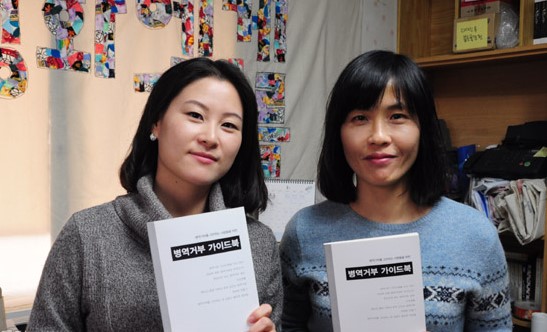
한국 병역거부 운동을 이끌어 온 것은 여성활동가들이었다. 여성주의적 리더쉽은 병역거부 운동이 태생적 한계를 극복하는 데, 전쟁없는세상이 조직 내부의 건강한 민주적 모습을 유지하는 데 큰 역할을 했다.
성공의 한계와 한계를 뛰어넘기 위한 노력들
아직 갈 길이 멀다. 국방부와 정부의 일부 관료들은 대체복무제를 인권기준에 맞게 만드는 것에 관심이 없다. 보수 정당은 한술 더 떠서, 징벌적인 형태의 대체복무제를 주장하고 있다. 대체복무제 도입이 자칫 양심의 자유를 확장하거나 군사주의를 약화시키는 방식이 아니라 병역거부자들을 다른 방식으로 처벌하는 방식이 될 수도 있다. 대체복무제가 징벌적이지 않은 형태로 만들어지게 하는 것이 현 시점에서 가장 중요한 과제다.
한편 대체복무제를 좀 더 나은 제도로 만들기 위한 노력을 하면서 우리는 좀 더 근본적인 한계에 대해 고민하고 있다. 대체복무제도가 좀 더 좋은 제도가 되는 건 분명 인권 향상이라는 의미에선 큰 성과이지만, 과연 그것이 군사주의를 약화시키고 군사안보 이데올로기를 약화시키는 데도 효과적일까? 병역거부를 둘러싼 사회의 논쟁을 보면 아직까지 한국 사회는 병역거부자들을 감옥에 보내지 않는 것에는 상당히 우호적이지만, 병역거부를 하는 이유인 평화주의에 대해서는 부정적이라는 것을 알 수 있다.
또한 많은 나라에서 그랬듯이 병역거부가 법적으로 폭넓게 인정받을수록 병역거부가 반군사주의라는 맥락이 삭제된 채 탈정치화 된다는 것도 알고 있다. 우리는 더 많은 사람이 군대에 가지 않는 사회가 더 나은 사회라고 생각하지만, 더 많은 사람이 자연스럽게 대체복무를 선택하게 된다면 군대와 군사주의에 대한 고민을 하는 사람이 줄어든다는 아이러니를 우리는 받아들여야 하는 것이다.
그렇다면 대체복무제 도입 이후 반군사주의 운동, 병역거부 운동은 어떠해야 할까? 과거 우리의 위기를 극복하면서 느낀 지점을 교훈 삼아서 지금부터 준비하고 있다. 활동가들끼리 세미나와 토론을 몇 차례 진행했고 내년 초에는 전쟁없는세상의 반군사주의 운동 목표와 전략을 짜는 워크숍을 계획하고 있다.
반군사주의 운동으로서 병역거부 운동의 다음 스텝이 어떻게 결정될지 아직은 우리도 모른다. 다만 전세계적으로 가장 많은 군사비가 지출되는 지역인 동북아시아, 동북아시아에서 그리고 군사적 갈등의 핵심에 놓여있는 한반도에서 반군사주의 운동의 역할은 매우 중요하다는 것을 전쟁없는세상과 평화활동가들은 알고 있다. 그리고 우리가 노력하는 만큼 세상이 바뀐다는 것도 알고 있다.
Achievements and Challenges of The Conscientious Objection Movement in South Korea
Yong-suk Lee (World Without War)
The Achievements of the South Korean Conscientious Objection Movement
On June 28, the Constitutional Court ruled that the current military service law was unconformable to the Constitution. This means that Korea’s military service law, which did not include an alternative service system, violates freedom of conscience, which the Constitution guarantees. On November 1, the Supreme Court acquitted a conscientious objector. There have been 118 acquittals in lower courts (as of November 1, 2018) but this is the first time that the Supreme Court has declared the innocence of a conscientious objector. It is great to see the recognition of conscientious objection as freedom of conscience in both the Constitutional Court and the Supreme Court.
Koreans strongly believe that strong military power is needed to defend the country. The main reason for this is that Korean was colonized for 35 years by neighboring Japan 100 years ago. Following this, the two Koreas fought an all-out war for three years after liberation, and since then there have been has been constant military conflict of varying intensity. The achievement of 2018 is significant considering that there were no political conscientious objectors to military service during the mass democratic movement against the military dictatorship in the 1980s. At that time, the student and labor movements that led the democratic movement in Korea were famous for their militaristic cultures.
This new consciousness is clearly an achievement of the conscientious objection movement. Of course, there have been more than 19,000 Jehovah’s Witnesses who have been imprisoned since the liberation of 1945 so that today’s achievements could be possible, but those who have made it a social issue and have constantly raised questions about it were political conscientious objectors and peace activists. 18 years of resistance to military service led to this decision by the judiciary, which is said to be the most conservative institution in Korean society.
Strategies that enabled success
The biggest factor that has led to the Constitutional Court’s decision and the Supreme Court’s not guilty verdict is that objectors have consistently appeared, thereby continuing to address conscientious objection as a social issue. Political objectors, in particular, have made their existence visible by speaking actively about their pacifism. In a variety of ways, such as holding press conferences and parties with supporters, they have turned the story of rejecting the military into a social movement.
At the center of this was World Without War (WWW). WWW offered counseling to those who were concerned about refusing military service. WWW worked together with these conscientious objectors to consider, plan and implement ways in which to communicate their ideas to Korean society. People who refuse to serve in the military naturally gathered around the WWW and went to jail after declaring their conscientious objection to military service. In the process, both conscientious objectors and activists deepened their concerns about the meaning of the conscientious objection movement.
In the early days of the campaign, WWW mainly talked about creating alternative service rather than how to prevent objectors being sent to prison. Following the U.S. invasion of Iraq and the Korean troop dispatch in 2003, the conscientious objection campaign gradually became an act of civil disobedience against state violence and for peace. It is important that the conscientious objection movement gradually strengthened the nature of the peace movement. This has allowed for a wider variety of aspects of conscientious objection. There have been conscientious objectors who decided to refuse military service after witnessing arbitrary rule, conscientious objectors who refused military service as feminists in order to redefine and expand the masculinity that the military has distorted, and conscientious objectors rejecting the normality and militarism forced upon them as a queer activists who have declared their conscientious objection with WWW. The emergence of various conscientious objectors has extended the meaning of conscientious objection in Korean society, and has become a stimulant that can be refreshed over time.
On the other hand, WWW has been expanding its contact with the international community while continuing its conscientious objection campaign. International peace movements such as War Resisters’ International (WRI) have been providing important advice and planning and executing campaigns since the beginning of the Korean movement. For Korean civil society, where the issue of objecting to military service was unfamiliar, international solidarity was simply an oasis in the desert. Strategies for campaigns and case studies on other countries’ contexts have been of great help. In particular, international solidarity gave the impression that the ‘peace movement is necessarily an international movement’ to Korean civil society, which tend to perceive the issue as a peripheral issue for the Korean Peninsula and Northeast Asia at best. WWW has also engaged with the United Nations and other international bodies well. In particular, international law and international human rights treaties have played an important role in influencing the judiciary to rule in favor of conscientious objection.
There was also a crisis. In 2007, the relatively reformed Roh Moo-hyun government decided to introduce an alternative service system, but, the Ministry of Defense completely reversed the original decision after the conservative Lee Myung-bak government came in. After that, activists felt helpless. Activists who have done everything they could including all kinds of street actions, creating international solidarity and engaging the international human rights bodies, lobbying and actions to put pressure on the National Assembly, had lost their energy. Given Korea’s political landscape, it was questionable whether a change would be possible if the conservative government continued. Activists were tired, discouraged, and above all else, had lost track of what to do and what could be done. At that time, WWW hosted a nonviolence training using Bill Moyer’s Movement Action Plan tool with the help of the WRI to reflect on its activism and build future campaign plans. This was a very timely and necessary program for activists at WWW. This training allowed the activists to feel re-empowered. Activists were able to ease their anxiety by learning that social movements were a long process and by finding the strategies they need now to achieve their short- and long-term goals. In addition, each activist was able to actively find their roles in the campaign for success.
Limitations of success and efforts to overcome those limitations
With the Constitutional Court’s decision, the introduction of alternative service system has become a given, but there is still a long way to go. Some officials in the Ministry of National Defense and the government are not interested in addressing whether alternative service meets human rights standards. The conservative party is arguing for an alternative punishment in a punitive form. The introduction of alternative service may not be a way to expand freedom of conscience or weaken militarism, but rather another way to punish conscientious objectors.
Now WWW is working with other civil society organizations to focus on making the government’s proposed alternative service available in a more human rights friendly and non-punitive manner. Campaigns are being held to pressure the Ministry of National Defense, persuade the government, and boost public sentiment on conscientious objection.
WWW faces a more fundamental question while trying to create a better alternative service. While it is certainly a big achievement in terms of improving human rights, can it also be effective at weakening militarism and military security ideology? The social debate over objecting to military service shows that Korean society is quite favorable to ensuring conscientious objectors are not sent to jail, but negative about the reasons they refuse to serve – nonviolence and pacifism. We also recognize that legal recognition of the right to conscientious objection has led to the de-politicization of campaigns in some countries. Perhaps the more the right to refuse military service is recognized in Korea, the less it will mean to resist militarism.
WWW is fully aware of this fundamental limitation of alternative service and is now preparing how to develop the anti-militarism movement after the introduction of the alternative service system. Our activists have held seminars and discussions several times about this, and early next year we are planning to hold workshops to set goals and strategies for WWW. We still do not know how our next steps will be determined as a post-alternative service movement. However, WWW and other peace activists here know the importance of the role of anti-militarists in Northeast Asia, the region where military spending is the highest in the world, and on the Korean Peninsula at the heart of military conflict. The amount of change that will come will be based on the amount of effort we are prepared to make.
Translation: Jungmin Choi
Proofreading: Tom Rainey Smith




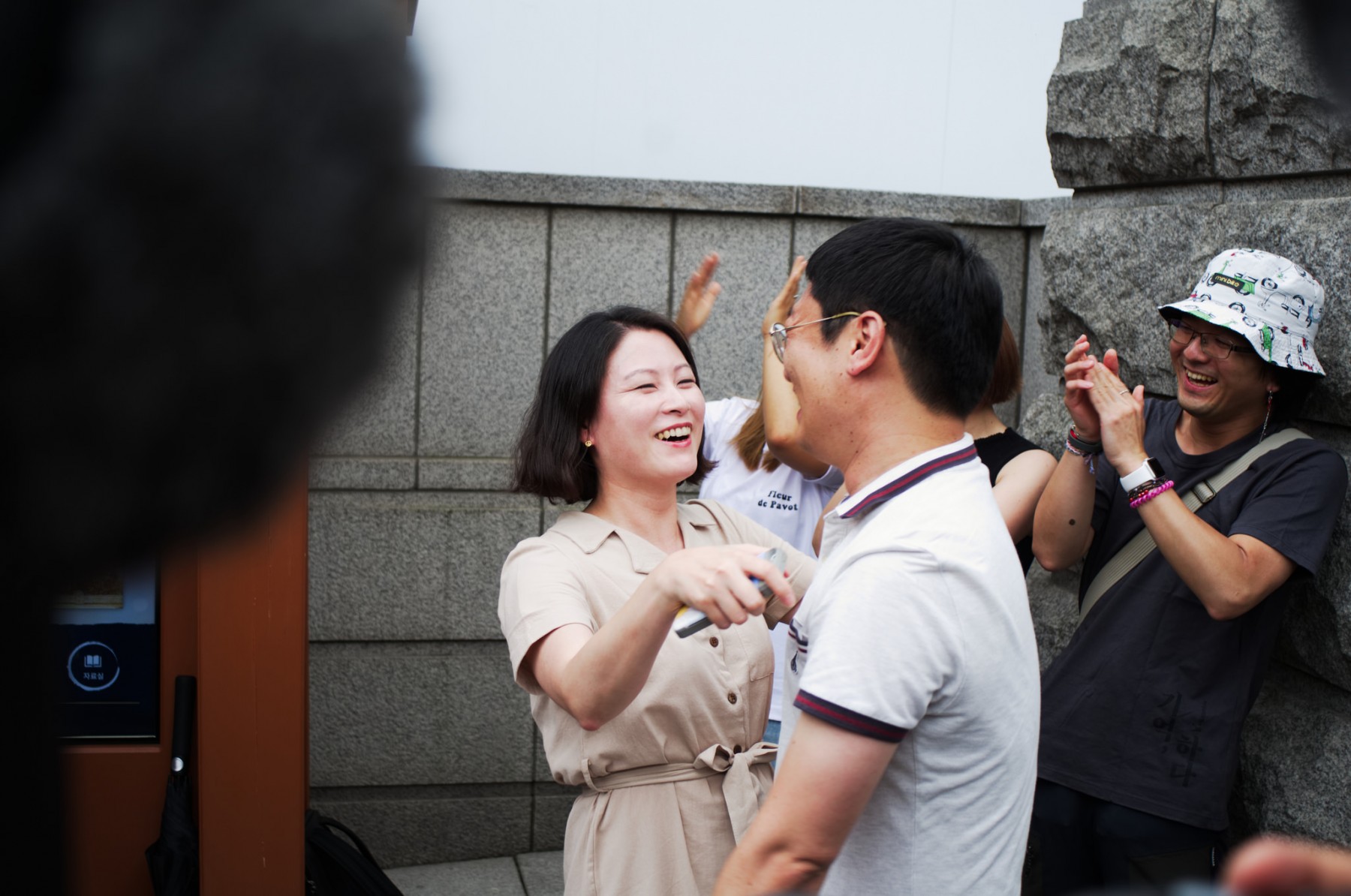
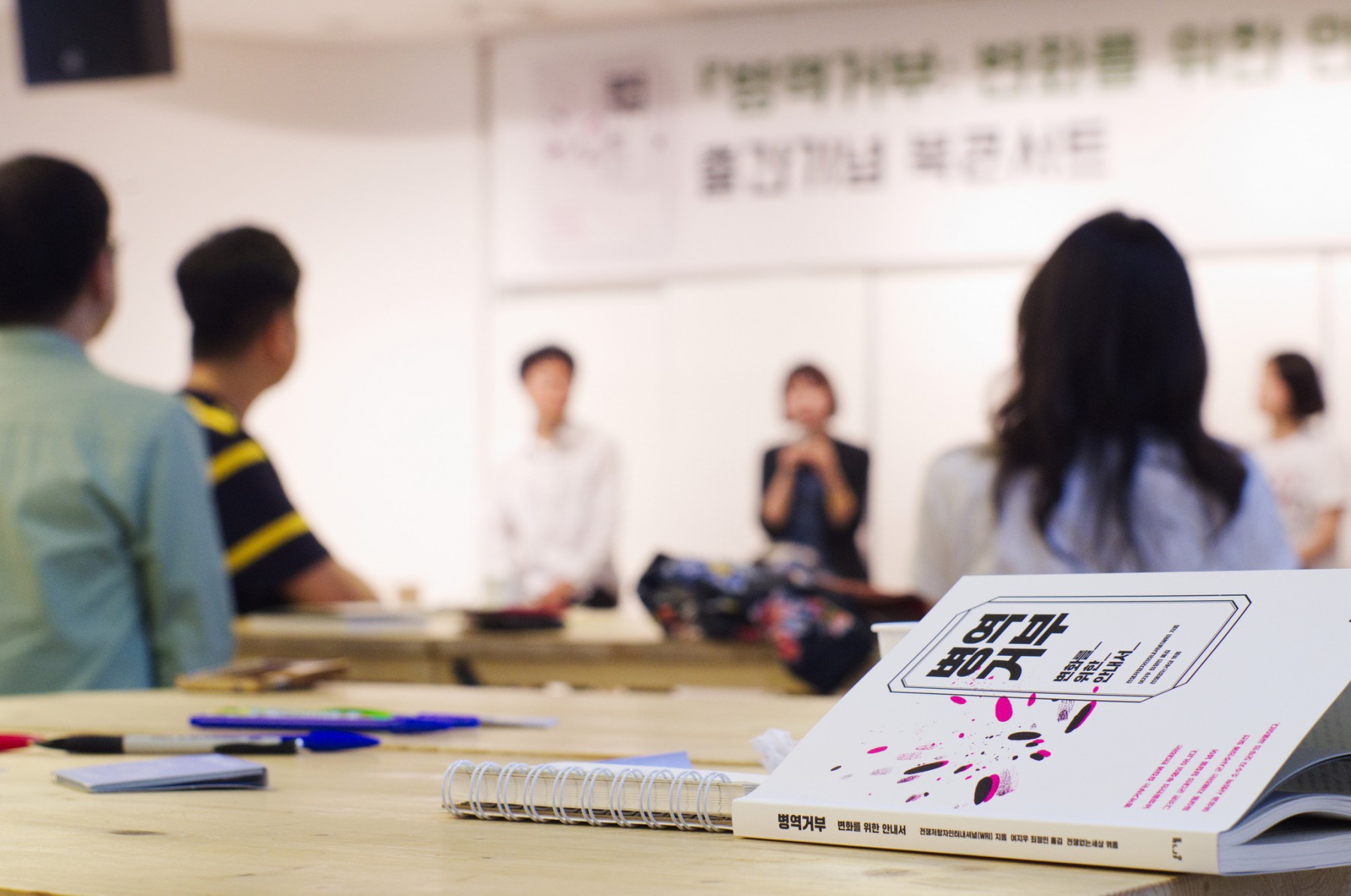


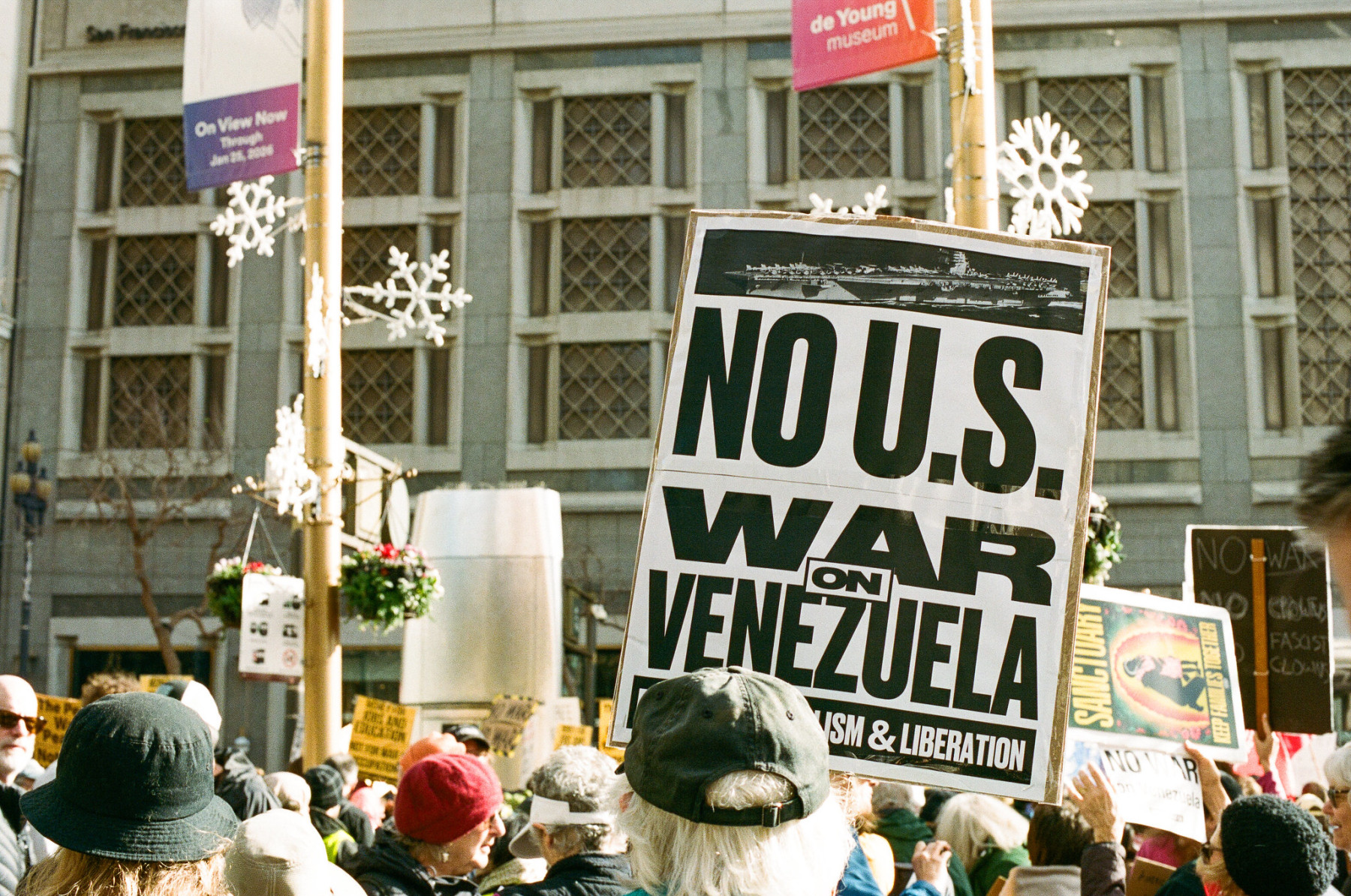
![[성명] 미얀마 군부 쿠데타 5년: 징병제 부활로 심화되는 인권 위기](https://withoutwar.org/www_wp/wp-content/uploads/2026/01/myanmar-45x45.png)
![[국제공동성명] 병역거부자이자 인권활동가, 유리 셸리아젠코 탄압에 대한 긴급 성명](https://withoutwar.org/www_wp/wp-content/uploads/2026/01/123123-45x45.jpg)
![[보도자료] 대체복무제도 개선방향 모색을 위한 국회 토론회](https://withoutwar.org/www_wp/wp-content/uploads/2026/01/IMG_8696-45x45.jpg)
![[성명] 병역거부자를 가두는 나라에 양심의 자유는 존재하지 않는다 – 병역거부자 나단의 항소심 유죄 선고에 부쳐](https://withoutwar.org/www_wp/wp-content/uploads/2026/01/nadan-45x45.jpg)
![[평화를 살다] “요리하고 먹고 저항하라” – 팔라펠과 후무스](https://withoutwar.org/www_wp/wp-content/uploads/2026/02/5-45x45.jpg)
![[평화를 읽다] 역사를 품은 그림, 쓸쓸함을 알아차리는 다정함 – 『어느 쓸쓸한 그림 이야기』를 읽고](https://withoutwar.org/www_wp/wp-content/uploads/2026/02/book-45x45.jpg)

